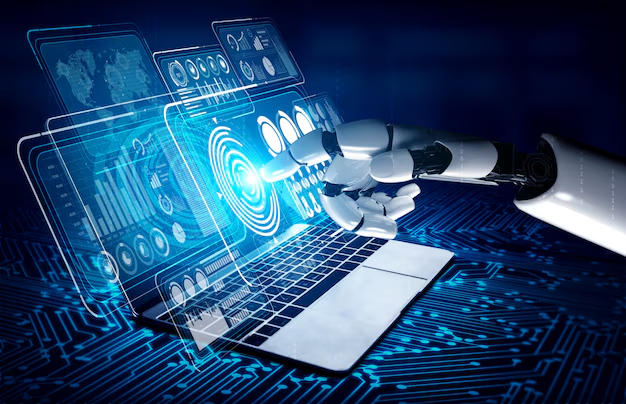Exploring the Impact of Emerging Technologies on Society
“Exploring the Impact of Emerging Technologies on Society” is an important and timely topic, as the rapid advancement of technology continues to shape nearly every aspect of our daily lives. From artificial intelligence (AI) and robotics to blockchain and biotechnology, emerging technologies have the potential to revolutionize how we live, work, and interact. However, they also present new challenges and questions about ethics, security, and the future of human society. Let’s break down the various ways emerging technologies are impacting society:
1. Technological Advancements in Healthcare
- Personalized Medicine: Emerging technologies, such as AI and genomics, are transforming healthcare by enabling more personalized treatment plans. With genetic sequencing and AI-driven analysis, doctors can better understand individual patients’ needs and tailor treatments, improving outcomes and reducing side effects.
- Telemedicine: The use of digital tools to provide remote healthcare services has skyrocketed, especially during the COVID-19 pandemic. Telemedicine has increased access to healthcare, particularly in rural or underserved areas, and is making healthcare more convenient and affordable.
- Wearable Health Tech: Devices like smartwatches and fitness trackers collect real-time data about individuals’ health, empowering people to monitor their wellness and make data-driven decisions. These devices help in the early detection of health problems, potentially saving lives and reducing healthcare costs.
2. AI and Automation in the Workforce
- Job Displacement and Creation: AI and automation are transforming industries by streamlining processes and reducing the need for manual labor in some sectors. While this can lead to job displacement, especially in fields like manufacturing and retail, it also creates new opportunities in tech-focused roles like AI development, cybersecurity, and robotics.
- AI-Assisted Decision Making: AI systems are being implemented across various sectors, from finance to healthcare, to help make more informed and efficient decisions. AI algorithms can analyze massive datasets, identify patterns, and make predictions that human workers may miss, improving productivity and accuracy.
- Reskilling and Education: As automation continues to change the nature of work, there is an increasing emphasis on reskilling and upskilling the workforce. Lifelong learning and continuous education are becoming critical for adapting to the ever-evolving technological landscape.
3. The Ethics of Artificial Intelligence
- Bias in AI Systems: AI algorithms can sometimes reflect or even exacerbate societal biases, as they are trained on data that may include prejudices. This can lead to unfair outcomes, particularly in sensitive areas such as hiring, law enforcement, and lending. Addressing AI bias and ensuring fairness is a key ethical challenge.
- Autonomy and Privacy: AI-powered systems, such as facial recognition and surveillance tools, raise concerns about personal privacy and individual autonomy. Striking a balance between technological advancement and protecting civil liberties is an ongoing debate in the development and deployment of AI technologies.
- Decision-Making Power: As AI becomes more integrated into critical decision-making processes (e.g., in healthcare, criminal justice, and military applications), questions arise about accountability. Who is responsible when an AI system makes a mistake or causes harm? This is an important ethical and legal dilemma that needs addressing.
4. Blockchain and Decentralization
- Financial Inclusion: Blockchain technology, primarily associated with cryptocurrencies like Bitcoin and Ethereum, offers the potential for decentralized financial systems. This can make financial services more accessible to people without access to traditional banking systems, particularly in developing regions.
- Supply Chain Transparency: Blockchain can enhance transparency and accountability in supply chains, helping to track goods from production to delivery. This can reduce fraud, increase consumer trust, and improve sustainability by enabling more ethical sourcing practices.
- Decentralized Governance: Blockchain enables decentralized applications (dApps) that operate without a central authority, which could radically change how businesses, governments, and organizations are structured and run. This could lead to more democratic and transparent decision-making processes.
5. Impact on Social Interactions and Communication
- Social Media and Misinformation: The rise of social media platforms, powered by AI and data analytics, has transformed how we communicate and interact. While these platforms offer unprecedented connectivity, they also facilitate the spread of misinformation, polarization, and cyberbullying.
- Virtual Reality (VR) and Augmented Reality (AR): VR and AR are changing how we socialize, shop, and even learn. These technologies create immersive experiences that blur the line between the physical and digital worlds. VR can be used in therapy for conditions like PTSD, while AR enhances retail experiences by allowing users to “try” products virtually.
- Changes in Relationships: With the increasing use of digital communication tools, some experts argue that emerging technologies are altering the dynamics of human relationships. While technology enables constant connection, it may also contribute to social isolation and the decline of face-to-face interaction.
6. Environmental Impact and Sustainability
- Green Technologies: Emerging technologies like renewable energy systems, electric vehicles, and energy-efficient buildings are essential to addressing climate change and promoting sustainability. Solar, wind, and hydropower innovations are making clean energy more accessible and cost-effective.
- Carbon Footprint of Technology: However, some emerging technologies, such as cryptocurrency mining and data centers, have a significant environmental impact due to their high energy consumption. Balancing technological progress with environmental sustainability will be crucial moving forward.
- Waste Reduction through Innovation: Technologies such as 3D printing are transforming the manufacturing and waste management industries by enabling more efficient production methods that reduce material waste. Additionally, innovations in recycling and biodegradable materials can help address the growing problem of global waste.
7. Data Privacy and Security
- Big Data and Surveillance: As more of our personal data is collected through digital platforms, the risks to privacy and security increase. Emerging technologies in data analytics and surveillance can track our behaviors, movements, and preferences, leading to concerns about how this data is used and who controls it.
- Cybersecurity Challenges: As our dependence on digital technologies increases, so do the risks of cyber-attacks. Emerging technologies like AI and blockchain are being used to strengthen cybersecurity, but the ever-evolving nature of cyber threats means that data protection will continue to be a major challenge.
- Regulation of Data: Governments and organizations are under increasing pressure to establish robust frameworks for data protection. The introduction of regulations like the EU’s General Data Protection Regulation (GDPR) highlights the importance of safeguarding personal information in an increasingly digital world.
8. Ethical Implications of Biotechnology and Genetics
- Gene Editing: Technologies like CRISPR have the potential to cure genetic diseases, enhance crops, and even create designer babies. While these advancements promise significant benefits, they also raise profound ethical questions about eugenics, genetic privacy, and unintended consequences.
- Biotechnology in Healthcare: The integration of biotechnology into healthcare promises to revolutionize treatments for diseases, such as cancer and Alzheimer’s, through personalized therapies. However, these innovations also create ethical dilemmas regarding accessibility, fairness, and the potential misuse of biotechnological capabilities.
Conclusion
Emerging technologies are rapidly transforming our world in ways that were once thought to be science fiction. From healthcare and finance to communication and the environment, these innovations offer incredible opportunities for improving quality of life. However, they also present significant challenges that need careful consideration, including ethical concerns, security issues, and potential social inequalities. As society adapts to these changes, it is crucial to engage in thoughtful discussions, implement appropriate regulations, and ensure that technology is developed and used in ways that benefit humanity as a whole.

